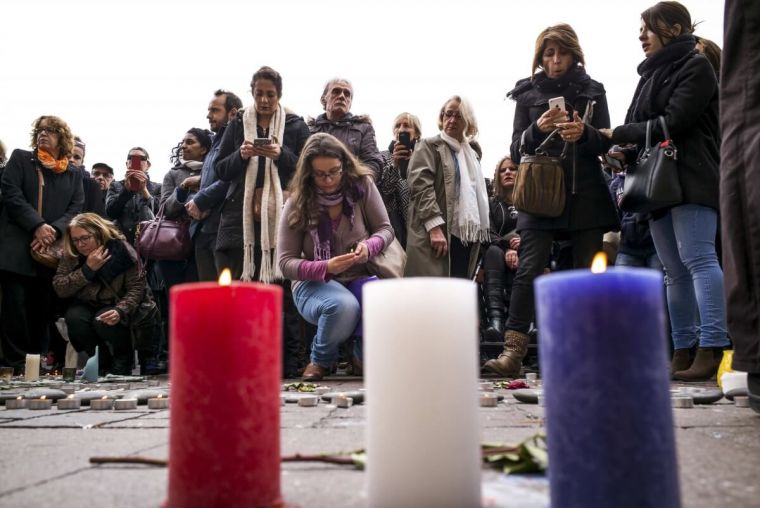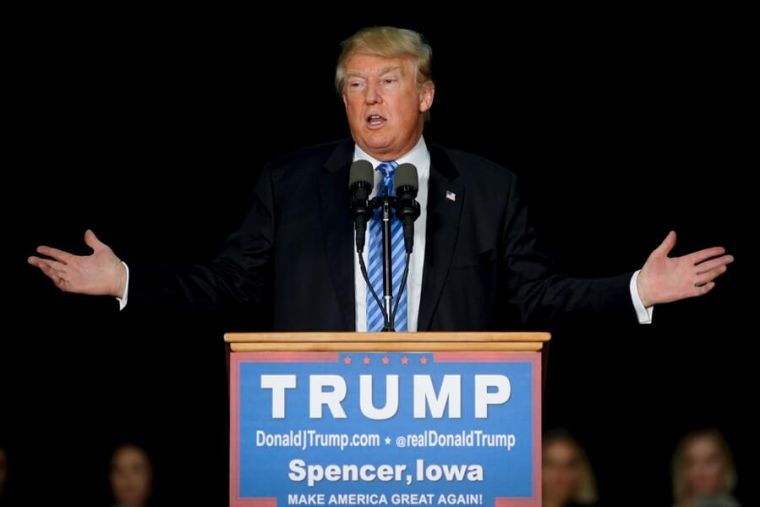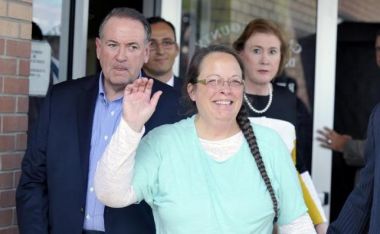What 2015 teaches us about following Christ: 1. Terror, xenophobia and crumbling Christendom
Scanning through the news headlines of 2015 it's hard not be depressed at the state of our world. This year saw terror spread through ISIS, an unprecedented refugee crisis, a mass killing every day – on average – in the USA and the Ebola pandemic in West Africa.
So how should Christians take stock of where we are in history? How do we avoid simply riding the roller coaster of the daily news cycle and yet remain informed enough that we can be like the men of Issachar, "who understood their times" (1Chronicles 12:32)?
Reflecting back on the news stories of the last 12 months may help us as we prepare to step into a new year.

1. Global terror and selective empathy
Terror attacks featured heavily in the headlines in 2015. France experienced both the Charlie Hebdo killings and shootings in a Jewish supermarket in January, a beheading at a chemical plant in June and an attempted shooting on a TGV train. Then the most deadly of all: the Paris attacks in November. This saw a rise in the degree of sophistication and planning, where the perpetrators seemed not to be looking to escape, but rather to kill as many people as possible. This marks a new degree of horror and calculation in Islamic extremist terror.
The attacks in Paris led to a mass outpouring of solidarity worldwide. Many changed their social media profiles to the tricolour. Capital cities around the world from Sydney to Rio lit up their national monuments in red, white and blue.

It was a powerful message to ISIS that the world will not ignore their violence, but will rally behind their victims.However the same respect was not offered to victims of other atrocities around the world. This year Nigeria has seen hundreds killed by Boko Haram, who have killed around 20,000 people and driven an estimated 1.5 million people in the region from their homes during its six-year insurgency.
What will it take to see the world's monuments lit up in the green and white of the Nigerian flag? In Kenya 147 students were killed at a single university in Garissa but the world did not respond with the same sympathy. Global leaders did not walk down the street arm in arm in solidarity.
Whether we like it or not we live in a world where some lives matter to us more than others. As consumers of the same media headlines as everyone else we Christians can sometimes fall victim to the same prejudices as the rest of our culture. As we reflect on the year, we can feel the challenge to demonstrate a global empathy and solidarity, not just with Christians around the world but with all fellow human beings made in God's image, no matter which country they come from.
2. Rising xenophobia and soundbite politics

The Paris attacks have already had a huge impact on global politics. In France there has been, perhaps understandably, a rise in nationalist politics, with Marine Le Pen's far right seeking to capitalise on the national sentiment to bolster its anti-Europe, anti-immigration stance.
Similarly headlines from the USA show that billionaire Republican candidate Donald Trump's ratings have been rising, despite outlandish statements suggesting that all Muslims should be prevented from entering the USA. Sadly, Franklin Graham has made similar statements.
Can you imagine if the world were to treat the US in this way? Imagine that Europe were to ban Americans from entering our borders because of the evils of the Ku Klux Klan, or the liberal gun laws, or its obesity epidemic. It would be ludicrous. We would end up banning black Americans in case they were KKK adherents – which is as short-sighted as the attempt to close our borders to Muslims who are fleeing terror rather than those that are perpetrators of it.
In a decade where 280,000 US citizens have been killed by armed US civilians – comparable to the United Nations estimates of 220,000 killed in the Syrian conflict up until January 2015 – we can see how using Trump's kind of logic, gross human rights violations would be committed.
The soundbite has become the currency of politics around the world. Nuance and complexity are not easy things to explore in the media at the moment. In a culture of fear, scapegoating is the easy option and as Christians we need to have the courage and the discernment to call it out and find ways to model a better way to move forward.
3. Crumbling Christendom and signs of hope
The landscape of religious belief in the west is going through seismic changes. This year the Pew Research Forum published statistics on the changing religious landscape of the USA and discovered that in just seven years there had been an eight per cent drop in the number of adults describing themselves as Christians. There was also a six per cent increase in those that claim to have no religious affiliation. The figures are particularly pronounced among young adults. The study shows that the US is facing a similar trend to the rest of the western world, despite still being the place where seven out of 10 of the population affiliate as Christians.

But there is an opportunity behind these statistics, both in Europe and the US. We are not necessarily seeing adeclining church but rather the end of nominalism. As Dr Tite Tienou of Trinity Evangelical Divinity School defines it: "Nominalism occurs when people identify themselves with a cause without clear understanding of it or serious commitment to it. In that case, such people are affiliated with that cause in name only.
"In regards to the Christian faith, nominalists are those who adhere to the external forms of piety and godliness while denying its power (2 Timothy 3:15)... nominalism refers to Christians whose Christianity does not go beyond mere identification with a church or a Christian body."
In his 2015 book Onward Russell Moore, the US Southern Baptist theologian, has written of evangelicals as a 'moral minority'. I struggle with this language, as it seems to imply that only Christians can be moral. But nevertheless, it does mark a significant step forward as even in the US culture wars there is a growing recognition that the majority of people do not actually or entirely hold to the Christian faith or share the same worldview.
With the crumbling of Christendom, being a Christian becomes increasingly socially unusual and so there are likely to be more areas of cross-cultural tension. We are seeing a lot of this on issues such as human sexuality and beginning and end of life issues. Christians are wrestling with how to stay faithful to biblical norms and distinguish them from historic cultural and social norms. Sadly a lot of the media attention has been taken up with times when Christians have fought for their rights for religious freedom at the expense of the freedom of expression of gay people.

So we have had 'cakegate', when the Ashers bakery in Northern Ireland refused to print a campaign slogan on one ofits cakes that stated "Support Gay Marriage". In May this year the courts ruled in favour of campaigner Andrew Muir who ordered the cake, even though it seems he deliberated targeted a Christian run bakery in order to make his point. Ashers was ordered to pay a fine of £500.
Similarly, in the USA Kim Davis, a Kentucky county court clerk, was jailed for refusing to issue marriage licences to gay couples. In changing times, working out what are the appropriate and effective ways to remain faithful to Christian beliefs in a pluralistic culture is a real challenge.
One of the big challenges the Church faces is how to choose which issues we need to try and influence public policy on and which issues are a matter of Christian discipleship. Because Christians are not in the majority and Christians' ethical standards are not universally shared, we must choose our battles wisely. In a pluralist society, Christians should not expect the culture to mirror, support or even encourage our values and beliefs.

This does not mean that Christians should retreat to a church ghetto or an evangelical subculture. We are called toinfluence the places where we live for God and for good. But increasingly we will have to pick the issues that we campaign on. We need to think primarily of the reputation of the gospel and how the issues we challenge the culture on effect people's perception of Christ. There will be a difference between what we expect of the wider culture and what we expect of believers seeking to follow Christ.
For example, it is not illegal to refuse to forgive someone and I don't know of any Christians that are seeking to legislate for forgiveness and force that on to the wider culture. Yet it is forgiveness is an essential element of Christian discipleship. We must learn how to pass on the grace of God that has been shown to us. In this area there is a difference between what we ask of the culture and what we ask of disciples. This will be increasingly true as Christendom crumbles.
Next: generosity, greed, persecution and good news.











